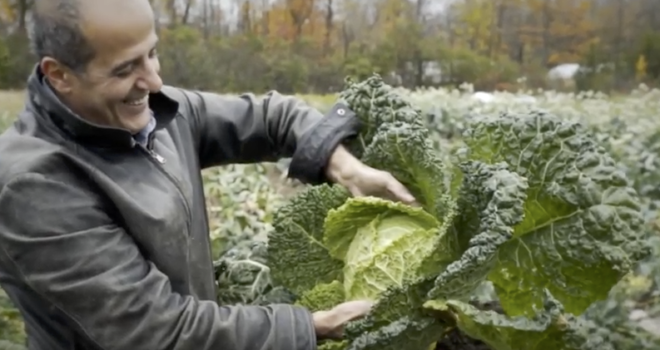The Système alimentaire montréalais [Montreal food system] and the Union des Producteurs Agricoles [farmers’ union] have produced two videos about farming in Montreal and its challenges.
Montreal has become increasingly recognized for its wide variety of urban farming projects. But many people are unaware of how many fruit and vegetable farms there are on the island, their history and the richness of the soil. Today, 4% of the city’s land is green space—2,047 ha of the most fertile muck soils in Quebec.
In response to increasing pressure to use this land for residential or industrial purposes, all the experts agree on one thing: this nourishing resource must be preserved for residents of Greater Montreal.
The Système alimentaire montréalais and the Union des Producteurs Agricoles decided to create two videos to highlight this collective heritage, as part of the project Montréal agricole, Un trésor caché, des terres à protéger [Montreal farmland: A hidden treasure that must be protected].
Farming in Montreal: History and issues
Today, nearly 430 ha in Montreal are used for growing fruits and vegetables. The fertile land, mostly in western Montreal, has been farmed for many generations. Another 50 ha and more of unused land could be cultivated.
The long-term goal is therefore to increase the proportion of Montreal’s farmland to 6%. The video Le Montréal agricole, vous connaissez? [Montreal’s farmland uncovered] talks about the current issues and future challenges of vegetable farming.
A diversity of producers
Fifteen farmers on Montreal Island share the same goal. They want to preserve Montreal’s agricultural heritage and provide residents with access to fruits and vegetables. But the diversity of production models is inspiring:
- Traditional family farm
- University campus for research and teaching
- Social and educational community organization
- Organic farming business
Watch the video Les visages du Montréal agricole [Faces of farming in Montreal] and meet these enthusiastic farmers.
Founded in 2012, the Système alimentaire montréalais (SAM) is a regional network of over 200 partners in the food sector (production, processing, distribution, consumption and post-consumption). The goal of the SAM 2025 development plan is to ensure that “in 2025, all residents of Greater Montreal have access to a variety of affordable, healthy, local, food, with a view to sustainable development.”
The Union des producteurs agricoles (UPA) represents over 42,000 farmers and all forestry producers in Quebec.



 Lentils
Lentils  Garlic
Garlic  Plant Diseases, Garden Pests, and Possible Treatments
Plant Diseases, Garden Pests, and Possible Treatments 









